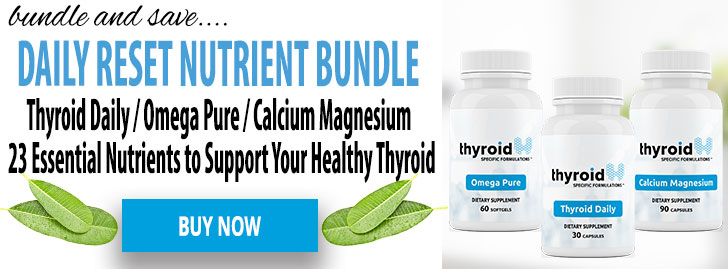Thyroid-Specific Effects
OK, now we’re down to healthy food options that work with your body. Among them, which are bad for your thyroid?
It is worth taking a moment to think about what criteria should be used to answer that question. You’ll find out if you haven’t already that experts have different opinions.
Some say everyone with thyroid disease must avoid all gluten. Others take that further and say all grains are harmful. Some say goitrogens are bad – even from foods like broccoli or kale.
Others say soy is the biggest problem. Others say it is oxalates and nightshades. Some even say you should only eat meat while others say protein from mammals contain antibodies that cross react with the thyroid.
No joke, if you follow all of the advice, you will have nothing to eat.
Once we’re down to a list of health foods, further restrictions should be made with caution. If you cut out entire food categories, you become far too likely to miss out on essential nutrients and phytonutrients. Plus restrictive diets can be psychologically unhealthy. They create social isolation and an unjustified fear of food.
Most of the ideas about foods that could hurt the thyroid are just that – ideas. They are results that people think might happen based on assumptions about how the body works. In medicine, ideas are like opinions. Until they are tested in the real world, we are wise to take them lightly.
The diets that have had real-world testing on humans and thyroid function include gluten-free, autoimmune paleo, and low iodine. Here is what we have learned.
Gluten free diets are essential for those with celiac. But they do not change thyroid function, even in people with celiac disease. If you don’t have celiac, but you feel better without gluten, you may as well avoid it.
The autoimmune paleo diet is popular. It does cut out processed foods, yet it is highly restrictive. There was a single study done to see if it could improve thyroid function. It did not.
At last count, we had over 33,000 studies on the connection between iodine and thyroid disease and over 1600 studies on the role of dietary iodine.
Extra iodine in the diet can cause Hashimoto’s disease and make it worse for those who have it. Avoiding extra iodine has been shown to reverse Hashimoto’s disease in 78% of participants and improve it for 97% of participants.
The goal is to keep one’s total daily iodine intake between 50 – 200 mcg for general thyroid health and under 100 mcg to improve thyroid function. It is worth noting that iodine can also come from more than just one’s diet. Medications, supplements, and cosmetics all count toward the total.












